A discovery that defies history
Deep in the heart of Egypt’s vast desert, archaeologists have uncovered a treasure that promises to rewrite our understanding of ancient civilization. A colossal 60-tonne granite sarcophagus, untouched for millennia, has emerged as a groundbreaking archaeological wonder that defies conventional expectations.

Unlike traditional burial sites, this extraordinary sarcophagus is not a final resting place for human remains, but rather functions as an extraordinary time capsule housing a stunning collection of gilded objects that challenge everything we thought we knew about ancient Egyptian technology and art.
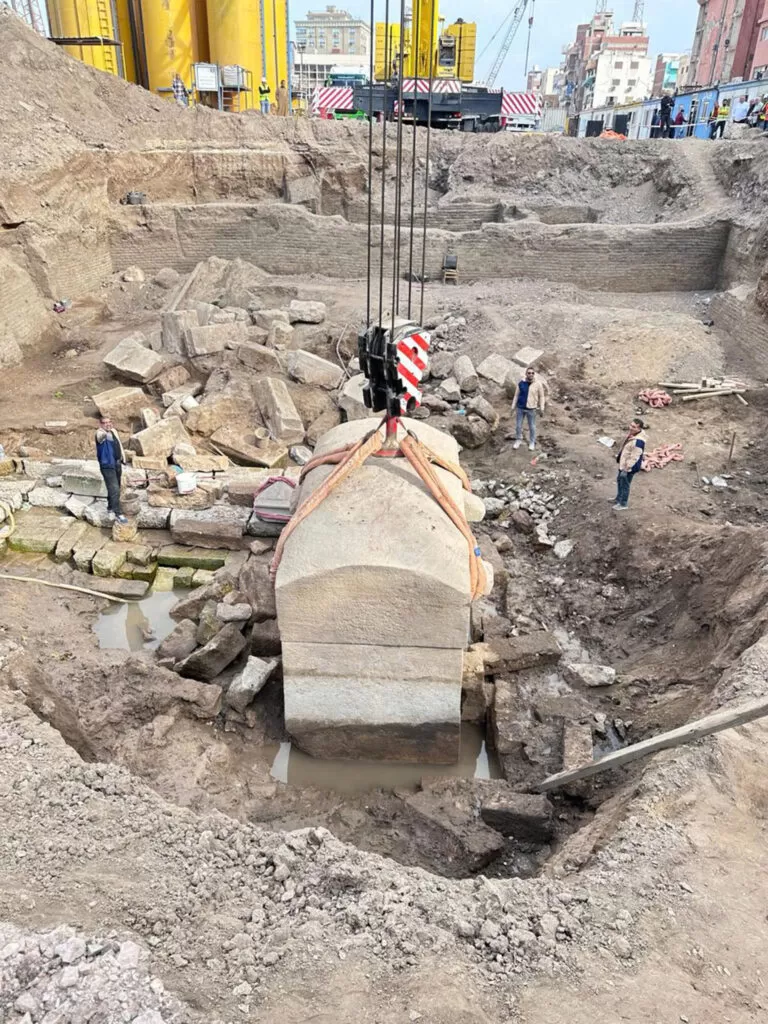
A treasure trove of unexpected artifacts. Golden relics beyond imagination
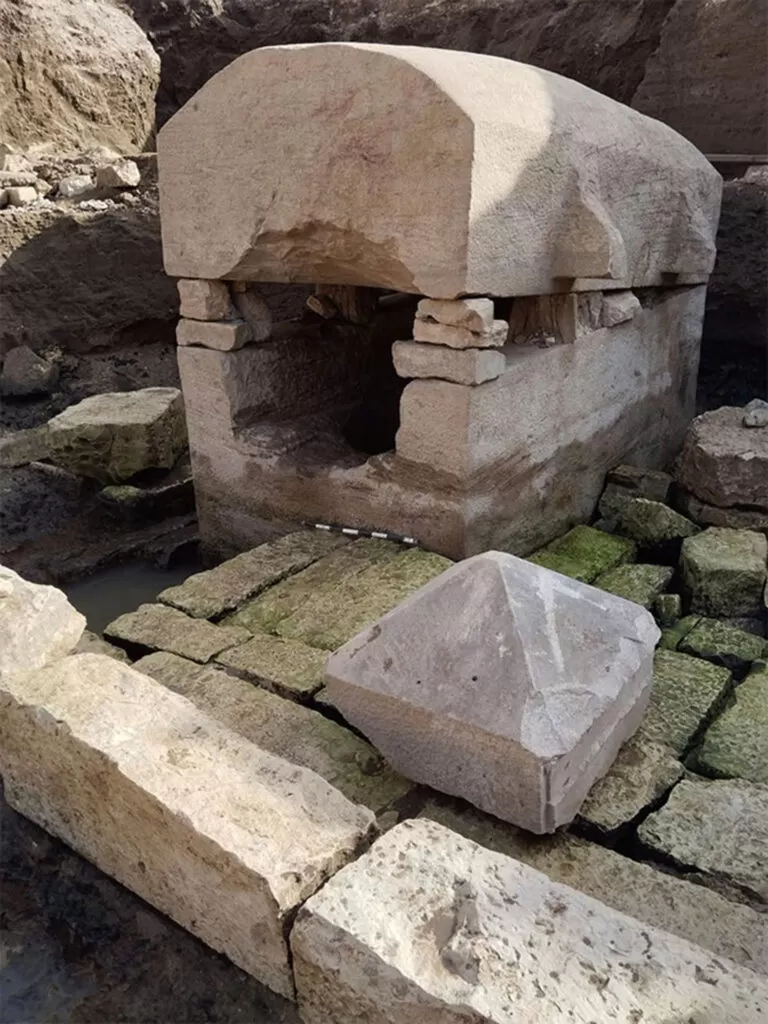
Inside the mᴀssive granite container, researchers discovered a number of priceless treasures:
Intricate statues of deities
Finely detailed figures depicting everyday life.
A series of inscribed tablets crafted from unprecedented metal
Each artifact speaks of a civilization of extraordinary skill, suggesting technological and artistic capabilities far more advanced than previously imagined.
The Mystery of the Inscribed Tablets
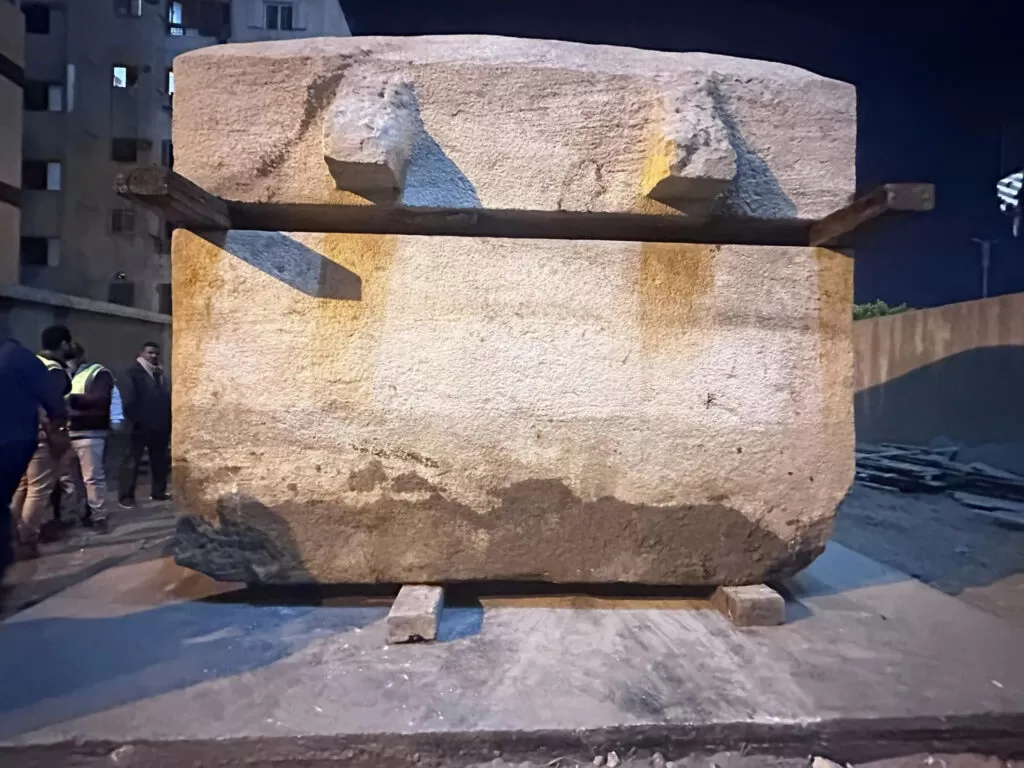
Perhaps the most intriguing element of this discovery is the collection of mysterious inscribed tablets. Made of an unknown metal and containing a language not yet deciphered, these tablets represent a tantalizing enigma for scholars around the world. They hint at spiritual practices, trade routes, or even completely forgotten dynasties that may be unknown.
A window into a lost civilization
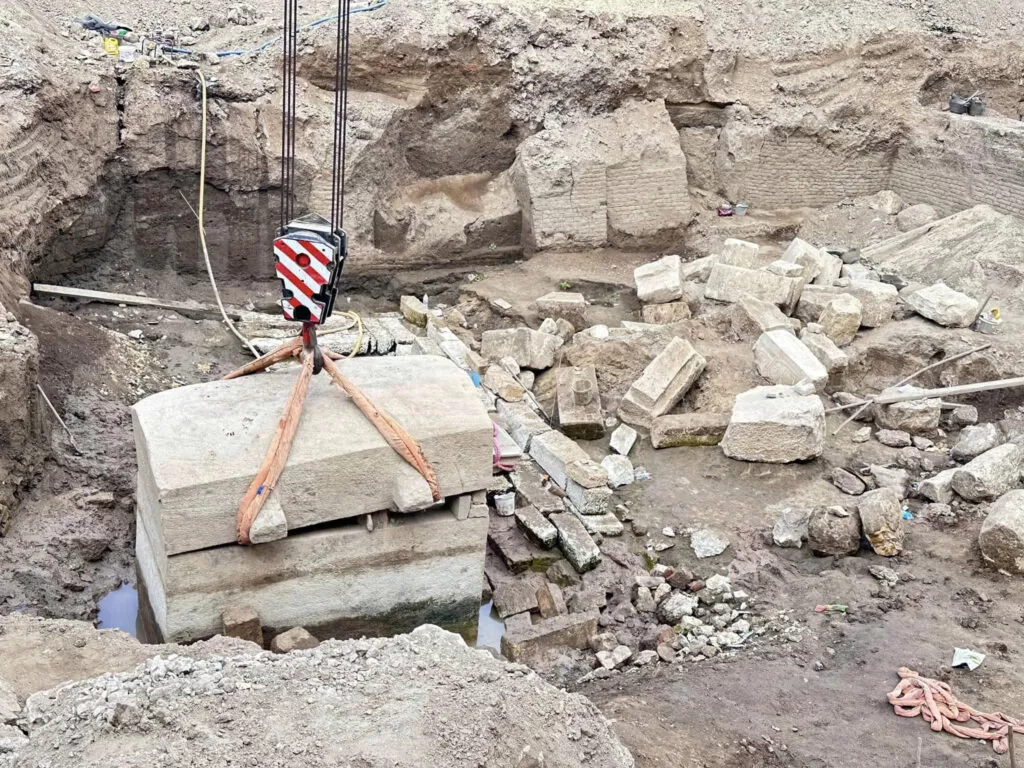
The sarcophagus is more than an archaeological find – it is a portal to a forgotten chapter in human history. The artifacts’ exquisite craftsmanship, unknown metalwork, and unexplained inscriptions point to a civilization that possessed knowledge and capabilities we are only just beginning to understand.
Rewriting Historical Timelines
As researchers continue to analyze this extraordinary discovery, the 60-ton granite sarcophagus stands as a testament to the complexity and depth of ancient Egyptian culture. It challenges our existing narratives and promises to unlock secrets about the origins of one of the world’s most fascinating civilizations.
Conclusion: A legacy waiting to be understood
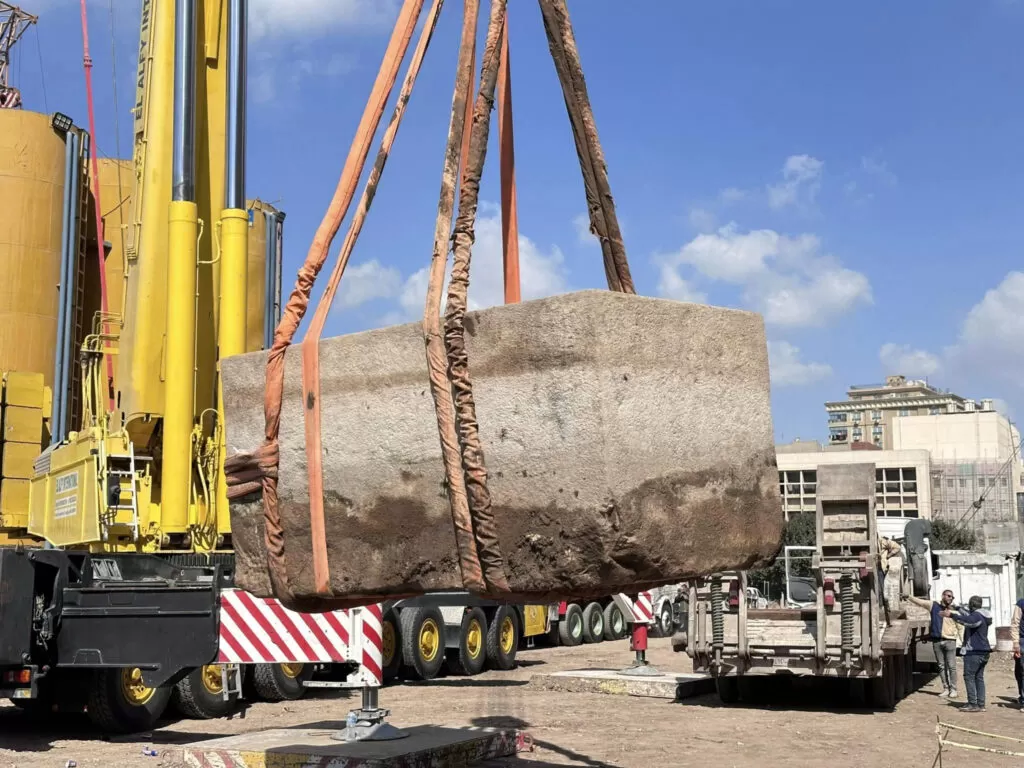
This remarkable find is more than just an archaeological discovery: it is a reminder of how much we still have to learn about our human heritage. As research continues, the sarcophagus and its contents could prove to be the most important archaeological revelation of our time.